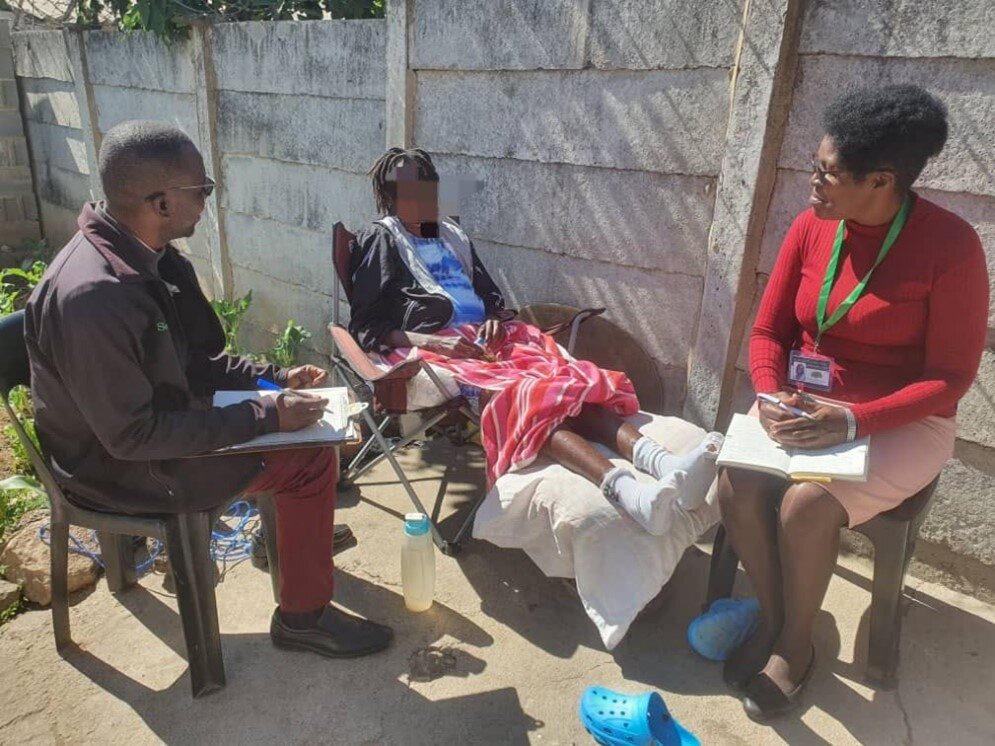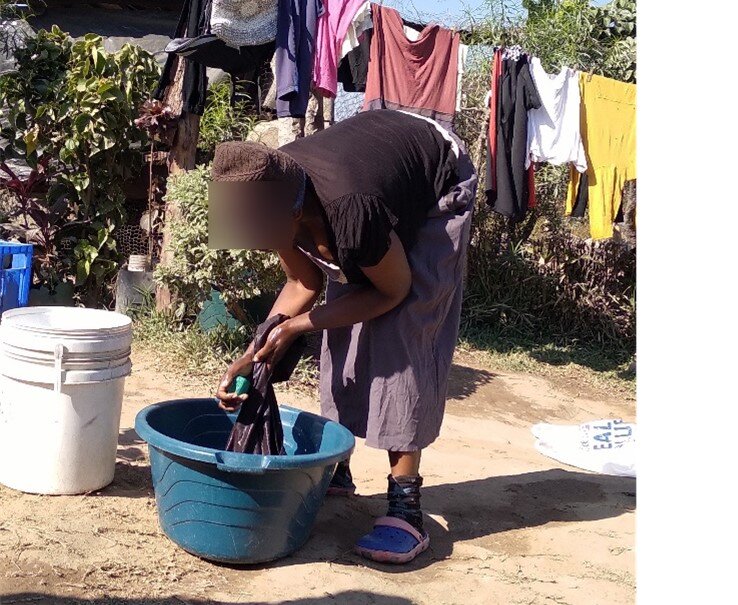By Lovemore Mupaza | Monitoring, Evaluation and Research Coordinator
Introduction and background
Island Hospice and Healthcare (Island) uses several models to deliver palliative care services namely (i) home-based care; (ii) hospital-based care iii) Rural and community outreach iv) Roadside services (v) therapeutic and comprehensive bereavement care, including for children; and (vi) capacity-building for doctors, nurses, community caregivers and others. The bereavement service offered by Island is aimed at those who are grieving after any death whether the family has lost a patient who died in our care, or a sudden unexpected death such as a car accident, suicide, or heart attack.
Intervention and outcomes
Between March 2023 and June 2023, Island continued its mission by providing care to individuals faced with life-threatening illnesses and the bereaved. To the bereaved and traumatised clients Island provided mental wellness sessions, bereavement support, debrief sessions and organised partner loss support groups. Island conducted training and workshops to improve knowledge, skills and attitudes in palliative and bereavement care across its branches and other organizations. The training included nurse aide training and caregiver module training. Participants who attended module training highlighted that modules were an eye opener that brought to light awareness and valuable information, especially on how they viewed death, how to deal with death and how to counsel clients. They added that they were empowered with skills necessary for the effective provision of care to patients and clients.
Between March 2023 and June 2023, Island provided care for 434 (265 Males: 169 Females) patients, marginally increasing from 412 supported in the previous reporting period. Patients and clients were cared for through 2830 contacts, up from 2,411 contacts in the previous reporting period. Virtual contacts (1500) continued to dominate Island’s means of delivering services followed by home visits (666) and office contacts (358). Other contacts were made through hospital ward rounds (150), roadside clinics (88) and hospital visits (68).
The two stories below demonstrate typical changes to people’s lives because of Island interventions.
Story of Change 1: Free from pain
My name is SB (Pseudo name). I am 41 years old. I stay in Bulawayo with my two children, my husband and my mother-in-law. I was diagnosed with stage four cancer of the pancreas in 2021. I was referred for 6 sessions of chemotherapy, but I decided to stay at home and wait for my day because I could not afford it. One session of chemotherapy costs USD400. Since then, I haven’t been able to walk, clean the house or bathe myself. The pain kept increasing to the point where I could only sleep for 30 minutes the whole night. I was worried that I was going to die and leave my children behind with no one to take care of them. My children couldn’t concentrate on their schoolwork anymore because they were worried about my illness. Their performance deteriorated from an average of position 5 in class to position 20.
I was referred to Island for Morphine and counselling sessions by Sister Noku from UBH this year. Island gave me morphine and provided counselling to me and the entire family, including my children.
I recently received a report that my children have improved in-class participation and concentration. I hope to see an improvement in their overall grades come the end of the term. I have accepted my condition and I am less worried about my illness. After taking morphine, I can sleep the whole night. My legs are no longer swollen the way they used to. As a result, I can now walk from where I am seated to the gate and come back. I can spend more time chatting with the family. I am also finding time to help my children with their homework.
Pain relief is the most significant of all the changes brought by the intervention. Unbearable pain was my greatest problem.
Story of Change 2: The game-changing intervention
My name is PM (Not real name). I am a 42-year-old woman. I stay in Mutare with my husband and four children. I was diagnosed with hypertension when I gave birth to my second born. I started taking medication but defaulted without going far. I believed my Lord would heal me. As a result of defaulting, I suffered a stroke. I could not walk, touch or do any of my daily household chores. I stopped physiotherapy sessions because I could not afford them. I lost all hope in life. I was suicidal because I felt that I was a burden to my children and my husband. I felt unaccepted, especially by those I thought should stand by my side in such circumstances. I always found myself raising my voice to my children each time I wanted to communicate with them. I felt I was not being valued by my spouse because he would make unilateral decisions that reversed almost all mutually agreed plans.
A community-based caregiver noticed me and referred me to Island Hospice for support. Island offered physiotherapy services and counselling sessions. In the counselling sessions, Island involved my children. The physiotherapist recommended daily BP recordings because my BP was very high. The social worker gave me a set of tasks to follow for therapy.
In no time BP recordings started to go down. I am now able walk and to do household activities like sweeping, laundry and cooking. I feel that I am useful and that life is worth living. I no longer have suicidal tendencies. A big thank you to Island.
Project reports on GlobalGiving are posted directly to globalgiving.org by Project Leaders as they are completed, generally every 3-4 months. To protect the integrity of these documents, GlobalGiving does not alter them; therefore you may find some language or formatting issues.
If you donate to this project or have donated to this project, you can receive an email when this project posts a report. You can also subscribe for reports without donating.
Support this important cause by creating a personalized fundraising page.
Start a Fundraiser
